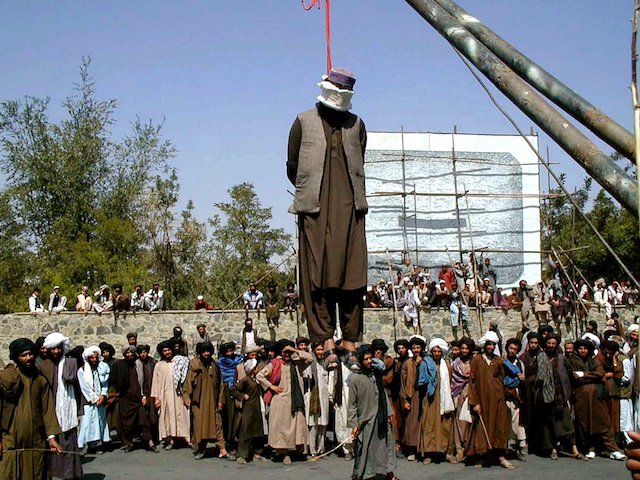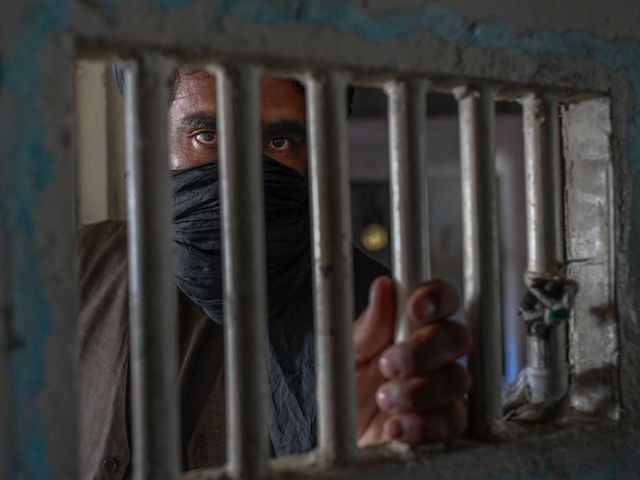Mullah Nooruddin Turabi, a founding member of the Taliban, said on Thursday the extremist group will resume executions and amputations as punishments for violating Islamic law, no matter what the international community thinks of its barbaric practices.
“Cutting off of hands is very necessary for security,” Turabi told the Associated Press (AP) in an interview. (Cutting of feet was apparently necessary too – it was the punishment for highway robbery.)
The aging mullah, who lost a leg and an eye fighting the Soviet invasion in the 80s and became the Taliban’s “Minister of Propagation of Virtue and Prevention of Vice” until the U.S. invasion in 2001, credited his enthusiasm for amputation with providing “complete safety in every part of the country” under the previous Taliban regime.

Taliban leader Mullah Nooruddin Turabi poses for a photo in Kabul, Afghanistan, September 22, 2021. (AP Photo/Felipe Dana)
The AP spoke to a few Kabul residents who said they were uneasy with the Taliban’s brutal punishments but thought they might indeed be effective at reducing crime.
Turabi insisted carrying out these gruesome punishments in public – sometimes as stadium events – was important for deterring lawbreakers, although he hinted that the new Taliban regime would soon “develop a policy” on public executions and torture that might be a bit less grandiose.
Turabi added that the more progressive Taliban 2.0 might allow some of the judges in future trials to be female. Under the old regime, “trials” were conducted in secret and the judges were mostly male clerics. Tubari, famed for screaming at female journalists until they left the room in his salad days, agreed to be interviewed by a woman from the Associated Press.

Spectators look at the dead body of Meya Gul, one of two convicted criminals hanged by the Taliban in front of a hotel in Kabul, September 23, 2000. (AP Photo/Amir Shah)
The AP noted at least two cases last week of bound men being paraded through the streets of Kabul by the Taliban for public humiliation, branded as “thieves” with paint on their faces or forced to choke on stale bread.
Turabi was not impressed by the Biden administration’s warnings of international disapproval for its brutality, most recently restated by President Joe Biden during his address to the U.N. General Assembly on Tuesday, where he mentioned a Security Council resolution “laying out the expectations to which we will hold the Taliban when it comes to respecting universal human rights.”
“Everyone criticized us for the punishments in the stadium, but we have never said anything about their laws and their punishments. No one will tell us what our laws should be. We will follow Islam and we will make our laws on the Quran,” Turabi told the AP.
Human Rights Watch (HRW) unsurprisingly reported on Thursday that atrocities are “widespread” in Kabul under the new Taliban regime, including “serious human rights violations against women and girls.”
HRW said:
Since taking over the city on August 12, 2021, the Taliban have instilled fear among women and girls by searching out high-profile women; denying women freedom of movement outside their homes; imposing compulsory dress codes; severely curtailing access to employment and education; and restricting the right to peaceful assembly.
